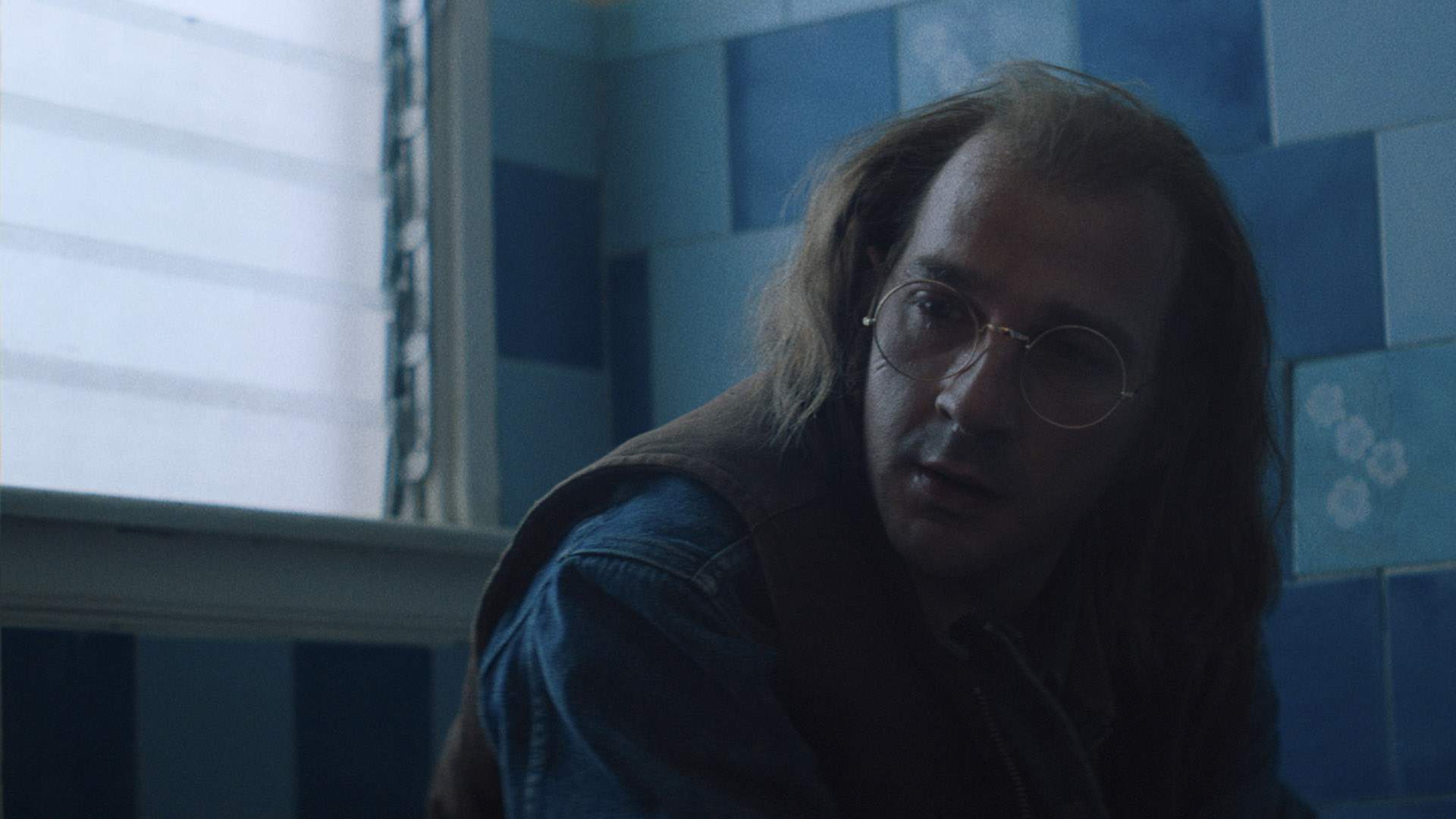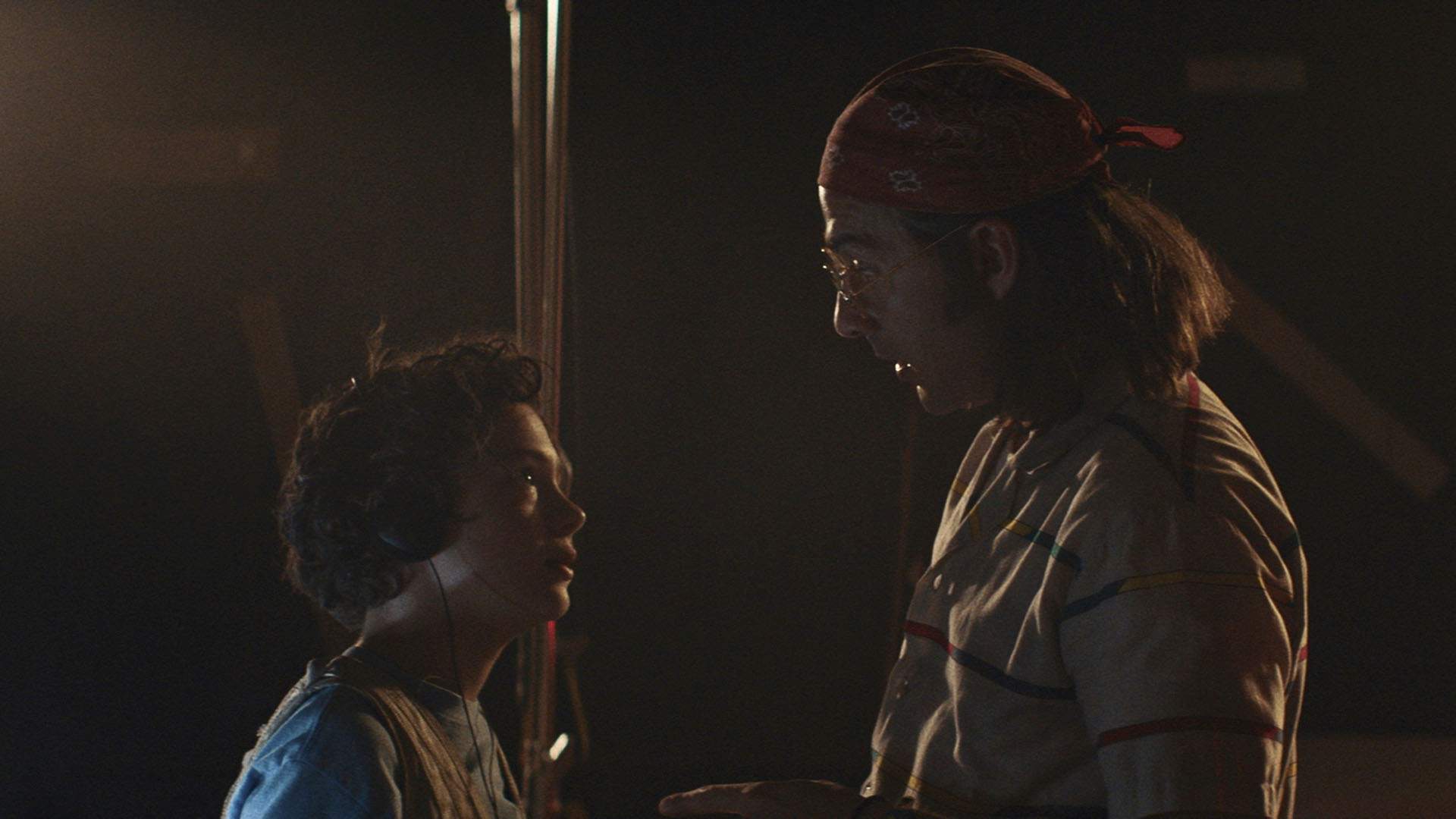Honey Boy
Shia LaBeouf stars as his own dad in this fiercely personal, cathartic and revelatory drama based on the actor's experiences as a child star.
Overview
UPDATE: June 10, 2020: Honey Boy is available to stream via Google Play, YouTube and iTunes.

A Vietnam veteran and ex-rodeo clown who treats his pre-teen son more like a buddy than a child, James Lort is the role that Shia LaBeouf was born to play. He has certainly studied it more closely and carefully than any other part — more than his time befriending shape-shifting aliens in Transformers, undoubtedly — because he spent his whole childhood watching it in action. That's what kids do with their fathers. They don't usually write screenplays about the experience, then step into their own dad's shoes themselves, but that's the situation that LaBeouf is in. Basing Honey Boy on his years as a child actor, and on his father's involvement, the result is an astonishingly personal and revelatory film that continues the American Honey and The Peanut Butter Falcon star's recent stellar streak.
The names have been changed — LaBeouf's real-life father is called Jeffrey Craig LaBeouf, and the actor's 12-year-old on-screen surrogate (A Quiet Place's Noah Jupe) goes by Otis — but Honey Boy smacks of emotional authenticity. Even if LaBeouf and first-time feature director Alma Har'el didn't show an older Otis (Ben is Back's Lucas Hedges) being coaxed by his counsellor (Laura San Giacomo) to talk about his dad, the whole film would resemble a therapy session. Honey Boy is that introspective, but it isn't indulgent or needlessly navel-gazing. Rather, this piece of catharsis delves into one rather famous figure's demons while recognising that his experiences have universal resonance. Although we haven't all become Disney TV stars before puberty, we've all had our lives shaped by complicated influences.
'Complicated' may be an easy catch-all term for anything that isn't straightforward; however it definitely applies to Otis and James. As the latter constantly reminds the former, he's the hands-on parent that takes Otis to work, helps him learn his lines and oversees his career. But he's also erratic, haunted by his regrets and struggling with his four years of sobriety. One day, James is regaling everyone with his stories and gags on the set of Otis' TV series. The next, he forgets to pick him up once shooting is done. He also frequently leaves Otis alone in the Los Angeles motel room they call home, argues over just who's the boss — Otis' earnings support the family and he pays James to be his manager, so that's a thorny question — or gets envious over the volunteer mentor (Clifton Collins Jr) who wants to take Otis to a baseball game.
LaBeouf frames these incidents as memories, flickering in and out after 22-year-old Otis crashes his car, causes a scene, gets sent to rehab in lieu of prison and is diagnosed with post-traumatic stress disorder. In the process, LaBeouf drenches the whole film in the confused emotional state of someone who's scarred by his upbringing (hence the PTSD), yet also appreciates his dad's own problems and just loves his father like every kid does. This isn't an idealised, nostalgic look backwards, or a work of unfettered anger. Honey Boy, like LaBeouf himself, pinballs between multiple extremes. It should come as no surprise that this frank and sincere movie was written while LaBeouf was in rehab himself, and that it always feels like he's confronting issues he knows will never completely be resolved.
That's LaBeouf's recent career in a nutshell, both on and off the screen. Growing up in the spotlight, he has acted out his pain in reckless, risky and very public ways — and also channelled it into his art. When he wore a paper bag over his head, declaring "I am not famous anymore", he told the world he was more than just a celebrity. When he live-streamed himself watching a marathon of all of his own movies, he signalled his need to interrogate his history. Both received countless headlines, many dismissing LaBeouf as attention-seeking and vain; however they each exist on the same ruminative and purgative continuum as playing his own dad in a film about his childhood.
It's no wonder that LaBeouf's raw performance as James feels so lived-in, whether the character is manic or melancholy, testing his son's love or baring his secrets at an Alcoholics Anonymous meeting. It's a portrayal based not just on fact, but on a lifetime of feelings — and it's the centrepiece of an emotionally heavy, unwaveringly honest and touchingly heartfelt feature that welcomes viewers into LaBeouf's traumas. That intensity isn't just his alone, though. Jupe and Hedges, two of the best actors in their respective age groups, potently capture Otis' conflict and turmoil. In bit parts, Collins, San Giacomo and FKA Twigs (as a "shy girl" who befriends the young Otis when James is out) also flesh out his volatile world.
And, at every turn, Har'el finds an evocative and kinetic way to bring Otis' experiences to the screen, including by giving the whole film a dreamlike, hyperreal look and feel. The movie's first transition between the older and younger versions of the character, blasting each backwards while they're shooting — and while Jupe and Hedges both stare directly into the camera — immediately sets Honey Boy's reflective and expressive tone, and this intimate wander through LeBeouf's heart and soul doesn't let up from there.






